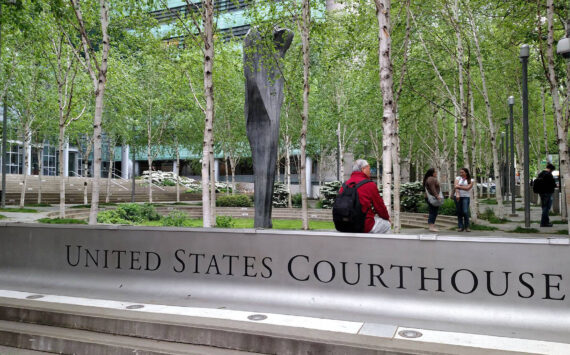The musical 1776—which sings and dances the audience though the drafting and ratification of the Declaration of Independence (it’s great! I promise!)—includes a moody number called “Molasses to Rum.”
Sung by the head of the South Carolina delegation, the song makes the argument that no one in the colonies is morally superior in the great moral/economic question of that time, slavery. After all, while the southern colonies have men and women in bondage, Massachusetts does a brisk trade in the spoils of that exploitation.
“Who sails the ships out of Boston
Ladened with bibles and rum?
Who drinks a toast to the Ivory Coast?
Hail Africa, the slavers have come
New England with bibles and rum.”
He’s prompted into this moral equivocation by a clause that slave-owner Thomas Jefferson included in the draft Declaration, which states that, among other things, the slave trade amounts to “piratical warfare.”
While this argument wasn’t sung in real life, it was made, to reprehensible effect: the anti-slavery language was struck from the Declaration. Slavery would remain legal in the United States for nearly another century.
I thought about that song while reading two piece in the Seattle Times over the past few days about the Arctic oil drilling rig. One was by an industry rep . The other was by staff columnist Danny Westneat. Both applied molasses-to-rum arguments to one of the the great moral/economic questions of our time: climate change, vis-a-vis the fracas over Shell Oil’s desire to house its Arctic drilling fleet in Seattle’s port.
Both pieces suggest it’s rather ironic that Seattle is protesting drilling in the Arctic, since our own refineries already process huge amounts of oil coming off the North Slope, and thus we Seattleites are running off the very Alaska oil we now are shaming.
“Who drinks a toast to the Arctic coast?”
Seattle.
Like slave owners before them, oil companies have long pursued this self-serving line of logic. Anyone who drives a car really has no right to question oil drilling. By making their good integral to the economy, they have rendered everyone who has the slightest dealings with the oil industry a hypocrite if they advocate for getting off the stuff. That, apparently, includes everyone who lives on the western side of Washington.
Now, were this argument made to make everyone in Seattle question how they use fossil fuels in their lives, then that would probably be a good conversation to have. But that’s not why these writers are making this argument. They are making the argument because they think opposition to the Shell oil rig is misguided. The industry guy is straight forward with it—the Arctic produces oil, you use that oil, so shut up. Westneat, strangely, wraps his argument in a green blanket. He commends protestors for making a stink, but takes city leaders to task for following the protesters’ lead and requiring that Shell get a new permit to dock here (or, as Westneat put it, using “the permitting process in a political manner … to make a show about blocking an oil rig”).
Westneat basically says that if Washington state won’t pass strong climate legislation that truly reduces our oil consumption, then we might as well not take any action at all.
No doubt, stronger law are needed. And people—politicians, no less—are trying to get them passed.
But even if the Shell protest turns out to be totally symbolic, it’s worth noting that the Jefferson’s controversial clause in the Declaration didn’t abolish slavery. It simply said that the practice was barbaric.
But as any smart slave owner knew, even symbolic measures like that could have a real effect eventually. Best to shame everyone into doing nothing until they could magically do everything.








